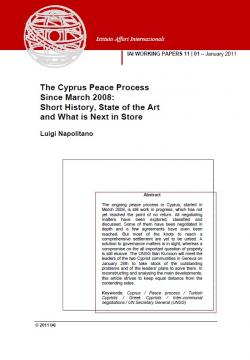Israel and the Palestinians After the Arab Spring: No Time for Peace
While spared from internal turmoil, Israel and the Palestinian Territories have nonetheless been affected by the region's political transformation brought about by the Arab Spring. Reflecting what can be described as Israel's "bunker" mentality, the Israeli government has characterized the Arab revolutionary wave as a security challenge, notably given its concern about the rise of Islamist forces. Prime Minister Netanyahu has capitalized on this sense of insecurity to justify his government's lack of significant action when it comes to the peace process. On the Palestinian side, both Hamas and Fatah have lost long-standing regional backers in Egypt and Syria and have had to contend with their increasingly shaky popular legitimacy. This has spurred renewed efforts for reconciliation, which however have so far produced no significant results. Against this backdrop, the chances for a resumption of serious Israeli-Palestinian peace talks appear increasingly dim. An effort by the international community is needed to break the current deadlock and establish an atmosphere more conducive for talks. In this context, the EU carries special responsibility as the only external actor that still enjoys some credibility as a balanced mediator between the sides.
-
Dati bibliografici
Roma, Istituto Affari Internazionali, 2012, 15 p. -
Numero
1216 -
ISBN/ISSN/DOI:
978-88-98042-53-1
Introduction
1. Israel and the Arab Spring
1.1. Israel's mounting security concerns in a changing neighbourhood
1.2. What next for Israel-Egypt peace?
2. Palestine: no "spring" in sight
2.1. Hamas and Fatah: between national reconciliation and international recognition
2.2. Emerging divisions within Hamas
3. Restarting peace talks in light of the Arab Spring




